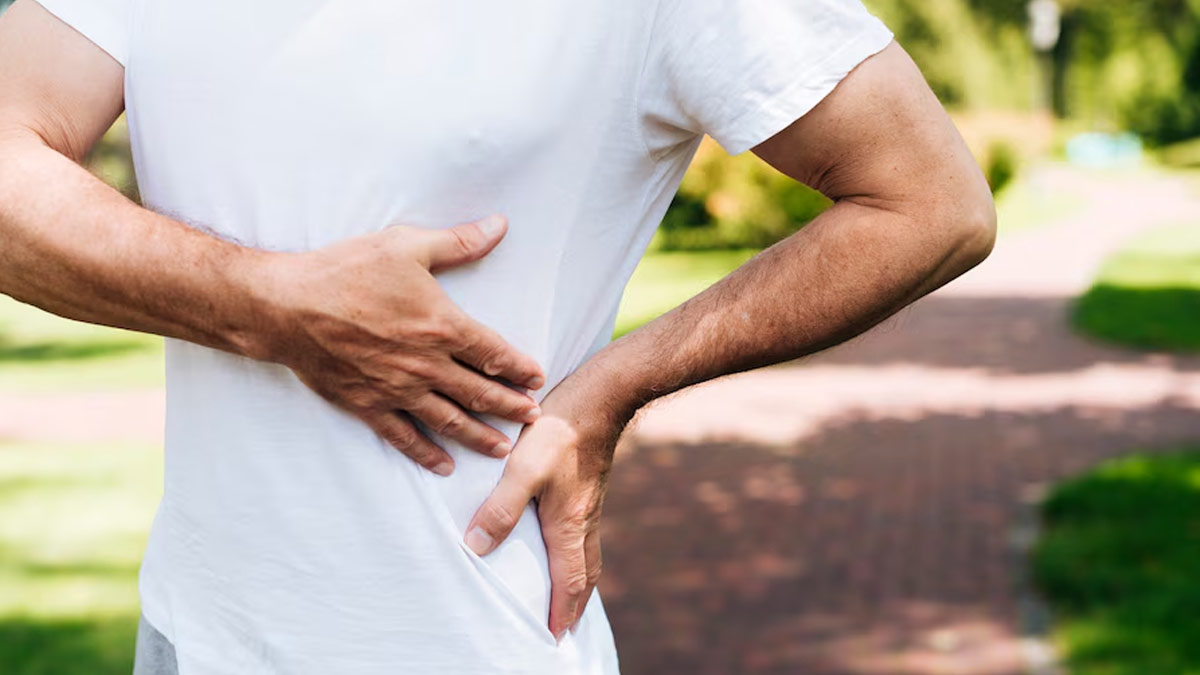
Urological diseases involve a wide range of conditions affecting the urinary tract and, in men, the reproductive organs. These issues can impact people of all ages and genders, causing discomfort, pain, and sometimes embarrassment.
Table of Content:-
Some common examples of urological problems include urinary tract infections (UTIs) and kidney stones, both of which can share some overlapping characteristics and symptoms. However, because the conditions require completely different sets of treatments, it is important to distinguish between the two.
Also Read: UTI May Go Away On Its Own But What Are The Risks Of Leaving It Untreated?
What Are Kidney Stones?

Kidney stones are characterised by hard deposits of minerals and salts that form in the kidneys. They can either be as small as a grain of sand or, very rarely, larger than a golf ball.
These stones usually don't cause any problems until they start to move around within the urinary tract. Once that happens, they can cause severe pain in the lower back, abdomen, or groin, along with pain or burning during urination.
As per a study published in the journal Cureus, kidney stone cases have a prevalence of about 12% worldwide.
What Is A UTI?
Urinary Tract Infection (UTI) is a bacterial infection that affects any part of your urinary system, which includes the kidneys, ureters, bladder, and urethra. However, the infection mostly occurs in the bladder and urethra.
Women are more prone to UTIs than men due to the shorter distance between the urethra and the bladder. In fact, women contract UTIs up to 30 times more often than men do, and four in 10 women who develop a UTI are likely to experience another episode of the infection within six months, according to the Office on Women's Health.
Symptoms can include burning pain during urination, frequent urination, feeling the urge to urinate even when there's little urine, and pain in the lower abdomen or back.
Also Read: 7 Ways How You Can Prevent Kidney Stones
Similar Symptoms Of UTI And Kidney Stones

Speaking with the OnlyMyHealth team, Dr Vimal Patel, Consultant Urologist, Jaslok Hospital and Research Centre, Mumbai, said, “Kidney stones and UTIs can share several symptoms, which may lead to initial confusion in diagnosis.” Some of these overlapping symptoms include:
- Pain in the lower abdomen or back.
- Frequent urination
- A persistent urge to urinate
- Pain or burning during urination
- The presence of blood in the urine
How To Distinguish Between The Two?
Even though kidney stones and UTIs can lead to common symptoms, there are some distinguishing factors to consider. These include:
Nature of pain: The pain from kidney stones is often described as sharp, severe, and colicky, frequently coming in waves as the stone moves. In contrast, UTI pain is typically dull and continuous, centred in the lower abdomen.
Systemic symptoms: Systemic denotes affecting the entire body rather than a single organ or body part. UTIs, especially when they ascend to the kidneys (pyelonephritis), can cause systemic symptoms like fever, chills, and malaise. Kidney stones usually do not cause fever unless there is a concurrent infection.
It is important to always consult a doctor to confirm your diagnosis. The expert can then use several diagnostic tools to determine the underlying cause of your symptoms. Some screening methods include:
A urine test that can detect the presence of blood, bacteria, or crystals
An ultrasound or CT scan is often employed to visualise kidney stones; these imaging techniques can reveal the size, location, and number of stones, although for UTIs, imaging is less commonly needed.
A urine culture test to confirm the presence of bacteria in the urine is definitive for diagnosing a UTI.
Treatment Options

Dr Patel said, “Confirming the correct diagnosis is vital because the treatments for kidney stones and UTIs are different and specific to their causes.”
He warned that misdiagnosis can lead to ineffective treatment and potentially serious complications, such as chronic kidney disease from recurrent stones or sepsis from untreated UTIs.
The treatment strategies for kidney stones and UTIs differ based on their underlying causes:
Kidney Stones
- Increasing fluid intake helps stones pass more easily.
- Analgesics are prescribed to manage pain.
- Medications like alpha-blockers can facilitate stone passage.
- Procedures such as lithotripsy or ureteroscopy may be necessary for larger stones.
UTIs
- The primary treatment for UTIs is a course of antibiotics to eliminate the bacterial infection.
- Drinking plenty of fluids helps flush out the bacteria.
- Over-the-counter pain relievers can help alleviate discomfort.
Both kidney stones and UTIs can be painful if left undiagnosed and untreated. It is important to distinguish between the two conditions so that timely treatment can be given for better outcomes.
Also watch this video
How we keep this article up to date:
We work with experts and keep a close eye on the latest in health and wellness. Whenever there is a new research or helpful information, we update our articles with accurate and useful advice.
Current Version